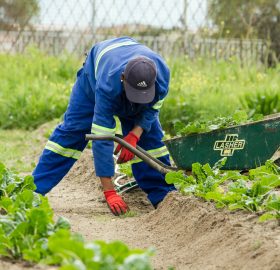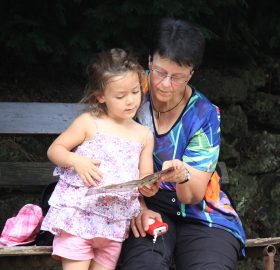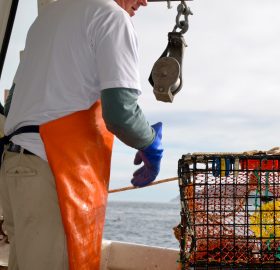New Alberta Immigrant Nominee Program Pathways
Alberta has two new provincial nominee pathways for international student graduates who want to start a business in the province.
The Alberta Immigrant Nominee Program (AINP) is launching two new immigration pathways to encourage international graduates to open businesses in Alberta that will create new high-paying jobs and help diversify the economy.
The International Graduate Entrepreneur Immigration Stream is started on October 26, 2020. This new Provincial Nominee Program (PNP) is for recent international student graduates from Alberta post-secondaries. The new immigration stream operates on an Expression of Interest system, which is now open to submissions.
Learn more about the eligibility requirements here: https://www.alberta.ca/ainp-international-graduate-entrepreneur-immigration-stream-eligibility.aspx#toc-0
Alberta will also launch the Foreign Graduate Start-up Visa Stream in January, 2021. This stream is for international student graduates from top U.S. universities and colleges, who want to start a business and settle in Alberta communities. More information on this program will be coming soon.
Contact us to discuss your personal situation and determine if these new streams are right for you.
Claiming Asylum in Canada
Canada respects its international obligations toward those who genuinely need help and protection. However, seeking asylum is not a shortcut to get around normal immigration rules and procedures. There must be legitimate reasons why you require asylum or it won’t be granted.
If you claim Asylum, you will face a rigorous process to determine whether or not you have a legitimate claim according to Canadian and international laws. This is to help make sure that all laws are followed to protect the safety, security and health of Canadians.
Every person seeking to enter Canada must appear for an examination at a port of entry to determine whether that person has a right to enter Canada, or may become authorized to enter and remain in Canada. If you would like to make an asylum claim in Canada, you can do so at a port of entry or at an inland Canada Border Services Agency (CBSA) or Immigration, Refugees and Citizenship Canada (IRCC) office.
CBSA or IRCC officials will determine if you are eligible to make a claim. Factors determining your eligibility to make a refugee claim include whether you have committed a serious crime, made a previous claim in Canada, or received protection in another country.
Irregular crossings into Canada
Some individuals enter Canada irregularly between designated ports of entry. This can be dangerous and is a violation of the law. For legal and personal safety reasons, you are encouraged to seek entry into Canada only at designated ports of entry.
People who are intercepted by the RCMP or local law enforcement after crossing the border irregularly are brought to the nearest CBSA or IRCC office, where an officer will conduct an immigration examination, including considering whether detention is warranted. At this point, individuals undergo health checks to address any immediate health needs, as well as security screenings to ensure that they do not pose a security threat to Canada and to determine whether they are eligible to make a refugee claim. These screenings include biographic and biometric checks (for example, fingerprinting). If required, a refugee claim will be started.
If the claim is determined to be eligible, it will be referred to the Refugee Protection Division of the Immigration and Refugee Board of Canada (IRB) for a hearing. In most cases, the foreign national will be released on terms and conditions while they await their hearing.
Receiving a decision on a refugee claim
Positive decision
Upon receiving a positive decision on their refugee claim, claimants receive protected person status with the full spectrum of federally funded settlement services becoming available to them. A positive Pre-Removal Risk Assessment decision also results in protected person status for the individual in most cases. This means that individuals can stay in Canada and apply to become a permanent resident in most cases.
Once you receive a positive decision, your team can assist you with your application for permanent residency. Contact us to get your application started.
Negative decision
If a claim is rejected by the Refugee Protection Division, individuals may be able to appeal the decision to the Refugee Appeal Division of the IRB. If individuals have no right to appeal to the Refugee Appeal Division, they can ask the Federal Court to review the decision.
Once all avenues of appeal have been exhausted, the conditional removal order that was issued at the time the refugee claim was initially made becomes enforceable in order to allow for the removal of the individuals.
To learn more about claiming asylum and how it fits with your situation specifically, please contact us at info@activeprofessionals.com.
Quebec Skilled Worker Program
Quebec has a special agreement on immigration with the Government of Canada. The province has its own rules for choosing immigrants who will adapt well to living there. Each year, Quebec selects thousands of immigrant workers whose skills, in addition to other factors, facilitate their job integration.
To immigrate to Canada as a Quebec-selected skilled worker, you must apply in the following 2 stages.
First, you must apply to the Government of Quebec for a Quebec Selection Certificate (Certificat de sélection du Québec [CSQ]). The Province of Quebec will assess you, using its own rules and if you are selected, you will receive a certificate which shows that the Province of Quebec has accepted you as an immigrant.
The selection process is on the basis of a selection grid, with points awarded on for various selection factors and criteria. The assessment of your application will determine whether you obtain a sufficient number of points to be selected by Quebec.
If the Province of Quebec chooses you and gives you a CSQ, you must apply to Immigration, Refugees and Citizenship Canada for permanent residence.
There are 3 steps to applying for permanent residence once you receive your CSQ from Quebec.
- After the Province of Quebec has selected you, get the application package, which has a guide to help you fill out the forms correctly. Answer all of the questions carefully, completely and truthfully. There are serious consequences if you misrepresent yourself or hold back information on your application.
- Pay your application fees which will often include processing fees for you and anyone you include on your application, the Right of Permanent Residence Fee (RPRF), and a biometrics fee. Depending on your situation, you may encounter third-party fees for items such as medical examinations, police certificates, educational credential assessments, etc.
- Submit your application. Make sure that you do not forget anything. If anything is missing your application won’t be complete and it will be returned without processing.
Our team is here to help, so if you have questions about the process or would like assistance along the way, please do not hesitate to contact us.
Rural and Northern Immigration Pilot Program
The Rural and Northern Immigration Pilot is a community-driven program, designed to spread the benefits of economic immigration to smaller communities.
There are 4 steps to applying for permanent residence under this pilot program:
- Check that you meet both IRCC eligibility requirements and the community-specific requirements.
- Find an eligible job with an employer in one of the participating communities.
- Once you have a job offer, submit your application for recommendation to the community.
- If a community recommends you, apply for permanent residence.
Each community will also have its own additional eligibility requirements, job search process and community recommendation application process.
The aim for this program is to create a path to permanent residence for skilled foreign workers who want to work and live in one of the participating communities.
Who Can Apply
To be eligible for this program, you must meet all IRCC eligibility requirements. This means you must have qualifying work experience or have graduated from a publicly funded post-secondary institution in the recommending community; you meet or exceed the language requirements; you meet or exceed the educational requirements; you can prove you have enough money to support your transition into the community and you intend to live in the community. You must also meet community-specific requirements.
If you meet all of the requirements, and believe this pilot program may be the right fit for you, contact us to get your application process started today.
Let Innovation Be Your Ticket
Canada’s Start-up Visa Program is designed to attract immigrant entrepreneurs with the skills and potential to build businesses in Canada that are innovative, can create jobs for Canadians and can compete on a global scale.
To be eligible for the Start-up Visa Program, you must have a qualifying business, get a letter of support from a designated organization, meet the language requirements and bring enough money to settle.
Your business idea or venture must get the support of one or more of the designated organizations listed below to apply for the Start-up Visa Program:
- Venture capital funds
- Angel investor groups
- Business incubators
Designated organizations are business groups that are approved to invest in or support possible start-ups through the Start-up Visa Program. These organizations choose which business proposals to review and each organization has its own intake process for proposals and criteria used to assess them. If an organization decides to review your business idea, it’ll assess the potential of your proposal and whether or not it’ll succeed.
If you reach an agreement with a designated organization, it’ll give you a Letter of Support.
The Government of Canada does not give financial support to new start-up visa immigrants, so you will need to bring enough money to settle. When you apply, you’ll need to give proof that you have the money to support yourself and your dependants after you arrive in Canada. You can’t borrow this money from another person. The amount of money you need depends on how many family members will be coming with you.
The Start-up Visa Program is a pathway to permanent residency. If your business fails, it doesn’t affect your permanent resident status. The Canadian Government recognizes that not every business will succeed and this program is designed so that the risk is shared between the public and private sector.
If you believe this program may be right for you, contact one of our RCICs to get your application started.
Reuniting Families Across Canada
The Family Class Sponsorship Program aids in reuniting families by enabling adult permanent residents or citizens to sponsor a relative for immigration to Canada. The Canadian government offers a number of ways to allow Canadian citizens and permanent residents to bring their loved ones from abroad to Canada under its Family Class Sponsorship.
The available sponsorship programs include:
- Spouse or common-law sponsorship
- Dependent children sponsorship
- Parent or Grandparent sponsorship
- Relative sponsorship
Your relatives can live, study and work in Canada if they become permanent residents of Canada. You can sponsor certain relatives to come to Canada if you’re at least 18 years old and a:
- Canadian citizen or
- person registered in Canada as an Indian under the Canadian Indian Act or
- permanent resident of Canada
By undertaking to support sponsored members of the family class, the sponsor promises that, for a specified duration, they will provide for the basic needs of their family members so they do not have to rely on social assistance.
Sponsorship applications involving spouses, common-law or conjugal partners, and dependent children are given priority.
Sponsorship applications involving adopted children, children to be adopted and orphans are also given priority, as they often involve minors without parental care. See more Adoptions (PDF, 474 KB).
There are no processing priorities for other members of the family class.
Contact us to learn more about the requirements of each sponsorship program and begin your application process.
What’s New to the Alberta Opportunity Stream?
The Alberta Opportunity Stream (AOS) is a pathway to permanent residence in Canada for migrants working in Alberta and international graduates who have completed their studies at an approved Alberta post-secondary institution.
Changes in the Last Year
Effective November 1, 2018:
- The income threshold requirement was removed. This means if you applied to AOS prior to November 1, 2018, the income threshold criteria will not be applied to your application.
- Changes have been made to the planned increases to language requirements.
Effective November 30, 2018, the Alberta Opportunity Stream List of Alberta Advanced Education Approved Post-Secondary Credentials will apply to Alberta international students enrolled on or after April 1, 2019
Effective April 1, 2019
- Canadian Language Benchmark (CLB) or Niveaux de competence linguistique canadiens (NCLC) 4
- Minimum High School in Country of Origin
- Change in eligible Alberta post-secondary certificates/diplomas. If admitted and enrolled in Alberta program on or after April 1, 2019, must have a post-graduate-certificate or diploma on the Alberta Opportunity Stream List of Alberta Advanced Education Approved Post-Secondary Credentials. No change to other eligible credentials (degrees and graduate-level certificates/diplomas)
Eligible post-graduate certificate holders must show occupation/work experience is related to their prior post-secondary field of study outside Canada.
Anticipated Changes
There are planned increased to the selection criteria for language and education between 2018 and 2021. Here is a list of what is expected to change and when it is expected to change:
- If you are admitted and enrolled in your Alberta credential program on or after April 1, 2019, your credential must be on the Alberta Opportunity Stream List of Alberta Advanced Education Approved Post-Secondary Credentials.
As of January 1, 2020
- If you are working in a NOC 0, A or B occupation, you must meet a minimum of CLB 5 for each English or French language skill at the time of application.
- If you are working in a NOC C or D occupation, there are no planned changes to language requirements. The minimum of CLB 4 for each English or French language skill at the time of application will continue to apply.
- CLB/NCLC 5 for candidates working in NOC 0, A or B occupation. No change for NOC C or D occupations.
- Minimum High School in Country of Origin.
- Change in eligible Alberta post-secondary certificates/diplomas. If admitted and enrolled in Alberta program on or after April 1, 2019, must have a post-graduate-certificate or diploma on the Alberta Opportunity Stream List of Alberta Advanced Education Approved Post-Secondary Credentials. No change to other eligible credentials (degrees and graduate-level certificates/diplomas).
- Eligible post-graduate certificate holders must show occupation/work experience is related to their prior post-secondary field of study outside Canada.
Starting January 1, 2021, all candidates except Post-Graduation Work Permit holders must have completed a minimum of high school equivalent to Alberta standards.
To discuss if the Alberta Opportunity Stream is the right program for you, set-up an initial consultation with one of our knowledgeable RCICs by emailing info@activeprofessionals.com.
Everything You Need to Know About the Atlantic Pilot Program
The Atlantic Immigration Pilot Program (AIPP) was developed for employers in the Atlantic provinces – Nova Scotia, New Brunswick, Newfoundland & Labrador, Prince Edward Island – to hire foreign skilled workers and recent international graduates who want to live and work in the Maritimes.
This program is designed for the sole use of Employers who are designated under the program to be able to recruit and hire workers with the skills, education and work experience to contribute to the local economy.
There are three programs in the pilot that employers can hire you through. Although you may qualify for more than one program, you can only apply through one.
The three programs are:
- Atlantic International Graduate Program
- Atlantic High-Skilled Program
- Atlantic Intermediate-Skilled Program
All three programs require you to show proof that you meet the language, education and work experience requirements and that you have enough money to support you and your family when you come to Canada.
Atlantic International Graduate Program
If you’ve lived and studied in one of the Atlantic provinces, you may be eligible to apply under the Atlantic International Graduate Program.
Are You Eligible?
To qualify, you must have lived in an Atlantic province for at least 16 months in the two years before getting your degree, diploma or credential, meet the education requirements, take a language test to show you can communicate in English or French and show that you have enough money to support yourself and your family in Canada.
Education Requirements
The education requirement state you must have at least a 2-year degree, diploma, certificate, or trade or apprenticeship credential from a recognized publicly-funded institution in an Atlantic province. And have been a full-time student for the entire duration of your studies. You also need to have graduated from this institution in the 24 months before your permanent resident application is received and had the visa or permit you needed to work, study or train in Canada.
Atlantic High-Skilled Program
This program is aimed at skilled workers with management, professional or technical/skilled job experience. If you have a job offer from a designated employer in Atlantic Canada for a full-time position of at least 30 hours per week, you may qualify for this program.
Program Eligibility Requirements
Work
You must have worked for at least one year within the last three years. It can be full-time, non-continuous, or part-time, as long as it adds up to 1,560 hours. The work must be in one occupation (but can be with different employers), paid, and at skill type/level 0, A, or B of the National Occupational Classification (NOC). Your experience can be gained inside or outside of Canada.
Education
You must have one of the following:
- a Canadian secondary (high school) or post-secondary certificate, diploma or degree
- a foreign degree, diploma or certificate, equal to a Canadian credential. You’ll need an Educational Credential Assessment (ECA) report from a recognized organization to show your credential is valid and equal to a Canadian credential.
Language
You must take one of the language tests approved. The test shows you can communicate in English or French well enough to live and work in Canada.
Proof of Funds
You need to have enough money to support yourself and your family when you get to Canada. If you’re already living and working in Canada with a valid work permit, you don’t need to show proof of funds.
Atlantic Intermediate-Skilled Program
This program is aimed at candidates for jobs requiring a high school education and/or job-specific training. You will need to have a job offer from a designated employer in Atlantic Canada for a full-time position of at least 30 hours per week to qualify for this program.
Additional Eligibility Requirements
- You must have a job full-time offer that is from an AIP-designated employer in an Atlantic province that is a skill type/level 0, A, B or C and is permanent. The offer must be made using the correct federal government form.
- You must have worked for at least one year within the last three years. It can be full-time, non-continuous, or part-time, as long as it adds up to 1,560 hours.
- You must have a Canadian secondary (high school) or post-secondary certificate, diploma or degree, or a foreign degree, diploma, certificate, or trade or apprenticeship education credential. You will need an Educational Credential Assessment (ECA) to make sure your foreign degree is valid and equal to a Canadian credential.
- You must core at least a level 4 in the Canadian Language Benchmark exam in English or the Niveaux de Compétence Linguistique Canadiens in French.
Other Ways to Immigrate to Atlantic Canada
- Nova Scotia Provincial Nominee Program
- New Brunswick Provincial Nominee Program
- Newfoundland & Labrador Provincial Nominee Program
- Prince Edward Island Provincial Nominee Program
Not sure if this is the program for you? Complete our Consultation Questionnaire so we can help you determine the best fit for your situation.
What Could Provincial Nomination Mean for You?
Provincial nomination offers a valuable route to Canadian permanent residence. Each of Canada’s provinces and territories, with the exception of Quebec and Nunavut, operates its own immigration program, called a Provincial Nominee Program (PNP). As the provinces have different populations and economies, their immigration programs are unique and built to fit their economic and demographic needs.
Each PNP has at least one stream for nomination, with many provinces and territories offering multiple streams. These streams are designed by the provinces to help meet their unique immigration goals, so the eligibility criteria and application procedures vary.
Applicants for PNPs are workers who have the skills, education and work experience to contribute to the economy of a specific province or territory, want to live in that province, and want to become permanent residents of Canada. Each stream will target different qualifications and may look to students, business people, or skilled workers.
How you will apply depends on which Provincial Nominee Program stream you’re applying to. You might need to apply using the paper-based process, or by the online process through Express Entry. As part of the process, you will have to pass a medical exam and get a police check (certificate). Everyone must have these checks, no matter where they plan to live in Canada. With more than 80 provincial immigration streams, discovering the Canadian immigration pathway that best suits you may be challenging. The team at Active Immigration Professionals can help. Contact us today to determine which stream is best suited to your individual circumstance and take the next step in your Canadian Journey.
What is Credit and Why Do I Need It?
Credit is a delayed payment plan between a borrower and a lender that enables access to funds for repayment at a later date. Common types of credit include installment loans for large purchases, as well as revolving credit arrangements including credit cards and lines of credit.
Access to credit reduces the burden of paying cash for high-cost items, such as a house or car, allowing you to spread the expense out over time. Credit is what makes purchasing major items like homes and cars possible for most Canadians.
Most lenders use credit scores to determine how much credit you can have. Insurance companies use your credit rating as a factor in determining what sort of rate to offer you on homeowner’s insurance, auto insurance, and life insurance.
So, how does a credit score work exactly? The more reliable you are at obtaining credit and paying the bills faithfully, the higher your rating will be. The higher your credit rating is, the lower you are as a perceived risk. People with high credit scores are statistically more likely to be safe drivers, safe homeowners, and likely to live longer.
Now that you want to create a killer credit score for yourself, how do you go about it? One of the easiest and most common ways to build your credit is by applying for a secure credit card. Use your credit card for small purchases monthly. Then, pay the credit card off completely every month. One of the most important steps in building a high credit score is to never miss a payment and always make at least the minimum payment.








